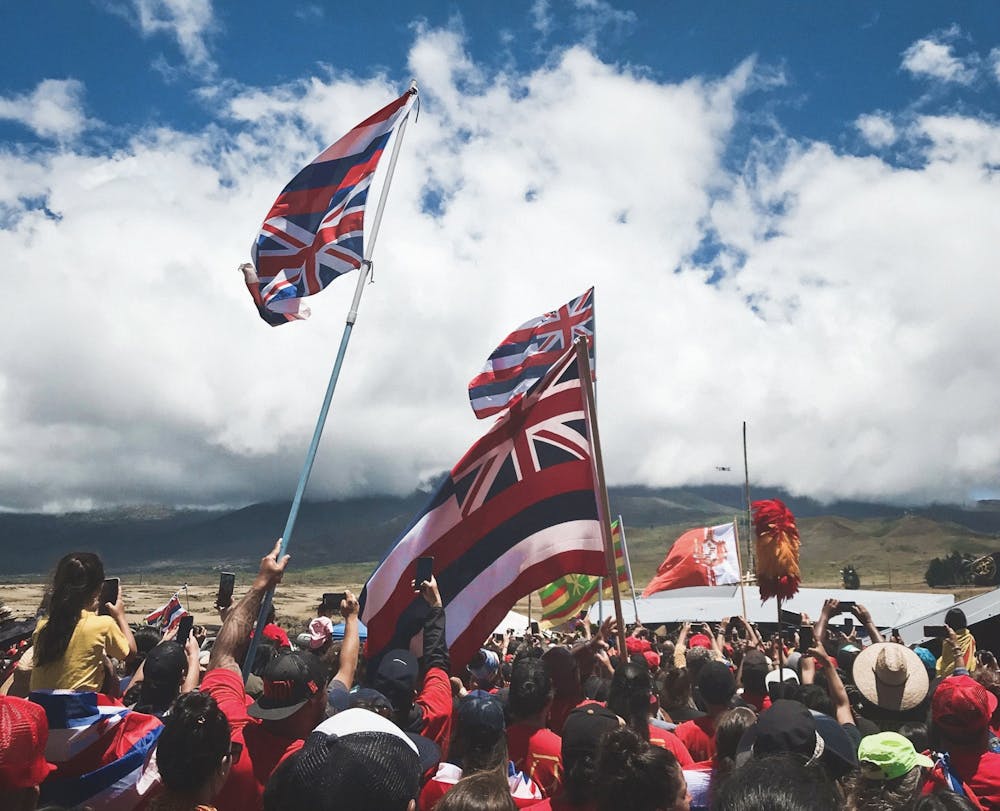Being Native Hawaiian is a unique experience.
It creates a very complex – and often very confusing and both mentally and emotionally taxing – relationship to America. Our ancestors were (unwillingly) made citizens of the United States after being illegally overthrown, annexed, and pushed into statehood. And now (as it has been for several decades), we must reckon with the consequences of the aforementioned events: dealing with the loss and misrepresentation of our culture, reteaching newer generations our heritage after decades of a disconnection due to events like the Hawaiian-language ban (which was only lifted in 1986), finding a way to live amidst a destructive tourism industry, and so on.
But that’s not even all of it; such consequences mentioned above are what we as a lāhui (nation) have had to primarily work on within our Native Hawaiian community. This doesn’t even touch upon the fact that along with teaching other Native Hawaiians about our culture and history and surviving the effects of colonization, we have had to teach people outside of our lāhui about our past and current struggles, highlighting the lack of support and representation we face. We shouldn’t have to bear this burden; we deserve to be seen and so much more.
Teaching others about our past and current struggles has been a continuous occurrence within my short time here at Princeton. Many individuals I’ve met didn’t even know Hawai‘i was a sovereign nation in the past; some didn’t even know that you could be “Native Hawaiian.”
I’m not surprised by this entire situation. In fact, I don’t blame the lack of awareness regarding Hawaiian history and culture, either. There’s so little Native Hawaiian representation within our educational environment that it’s inevitable most people don’t know about what has happened in the past and our continuous struggle with those events.
Native Hawaiians should not have to carry the weight of advocating for ourselves and our history alone. With Hawaiʻi being one of the fifty states, our past should, in all honesty, be common knowledge – including how the U.S. claimed our land as its territory. If we are to continue “welcoming” tourists into our Islands, then they should at least know what we have had to and continue to face.
In general, history regarding Indigenous peoples is not very widespread; even when people acknowledge or bring awareness to Indigenous history, it seems that oftentimes, Hawaiian history is underrepresented. This is illustrated here at Princeton.
Princeton currently has the Native American and Indigenous Studies Initiative at Princeton (NAISIP), which “fosters a cross-disciplinary dialogue among faculty, students, staff, and community members whose research and teaching interests focus on Indigenous peoples.” The initiative spotlights different Indigenous-focused communities (including organizations such as Natives at Princeton, Princeton Indigenous Advocacy Coalition, Princeton American Indian and Indigenous Studies Working Group, and so on), school activities and events, courses, and more. It’s empowering to see a variety of Indigenous peoples given such a well-deserved space within Princeton; however, discovering the noticeable lack of Native Hawaiian representation is not difficult.

As a Native Hawaiian student, it’s hard to feel seen here. I’m sure many other Hawaiians might feel the same way. If we are to be an inclusive space for all Indigenous students, it is crucial that we look at creating more resources for Native Hawaiian students, in particular. As Jessica Lambert ’22 put it in her article regarding the University’s advocacy for Indigenous students, “with phenomenal financial aid and an unmatched commitment to undergraduate education,” Princeton “has the capacity” to give Indigenous students – Native Hawaiian students – the support they deserve. One possibility could involve offering more courses that are centered around Hawaiian history, as well as hiring more faculty of Native Hawaiian descent. Perhaps then, Native Hawaiians could feel more empowered by being here.
Gisele Bisch is a first-year from the North Shore of Oʻahu (Hawai‘i) who plans to concentrate in anthropology. She can be reached at gb8528@princeton.edu.









